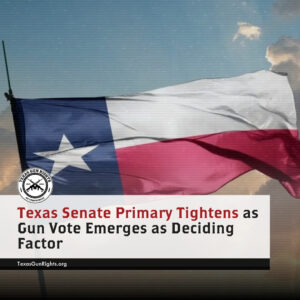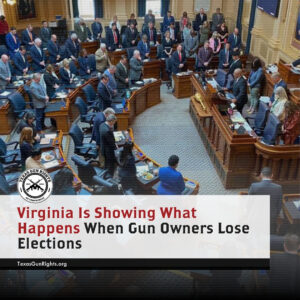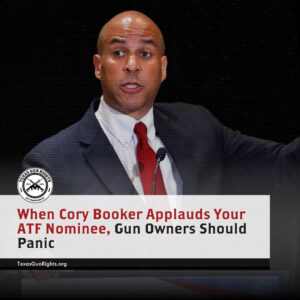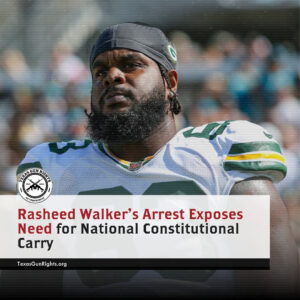At the heart of this challenge is the question of whether the state’s bans on carrying firearms in these locations align with the historical tradition of firearm regulation as required by the Supreme Court’s 2022 decision in New York State Rifle & Pistol Association v. Bruen.
The plaintiffs argue that these prohibitions—Penal Code §§ 46.03(a)(4), (7), and (8)—violate the Second Amendment, which guarantees the right to carry firearms for self-defense in public spaces. Specifically, the bans cover:
- Businesses deriving 51% or more of revenue from alcohol sales (bars and similar venues).
- Racetracks.
- Sporting events (including high school, collegiate, and professional games).
What Happens If the Plaintiffs Win?
For many, this would be seen as a restoration of constitutional rights, recognizing that the Second Amendment does not end at the door of a racetrack or stadium.
A win would signal that “sensitive place” designations, often used to justify gun bans in a variety of public settings, cannot be expanded arbitrarily.
The Historical Argument
The state’s defense likely hinges on framing these locations as “sensitive places”, similar to schools or courthouses—a narrow category that the Supreme Court acknowledged may allow for firearm restrictions.
- Bars and alcohol-serving venues: While misuse of firearms while intoxicated was historically punished, there was no sweeping prohibition on carrying firearms in such establishments.
- Racetracks and sporting events: These were common gathering places at the time of the Founding, yet no widespread regulations restricted firearm possession there.
The plaintiffs contend that extending the “sensitive places” doctrine to cover ordinary public spaces would gut the right to carry, as nearly any crowded or public venue could be reclassified.
A Broader Shift in Second Amendment Litigation
If Ziegenfuss v. Martin results in a favorable ruling for gun owners, it would represent a significant application of Bruen, reinforcing that public carry remains protected even in spaces deemed inconvenient by legislators.
Notably, Texas, often viewed as a pro-gun state, still maintains statutory restrictions inconsistent with constitutional carry principles.
In a time when Second Amendment rights remain under siege from all directions, Ziegenfuss v. Martin could offer gun owners a major legal win—reaffirming that the right to bear arms means bearing arms in public, even in places where bureaucrats would rather citizens be disarmed.







